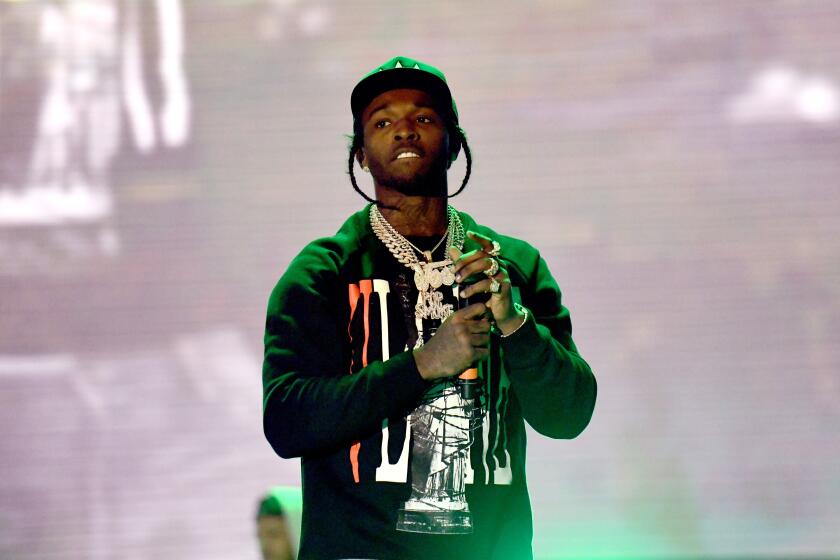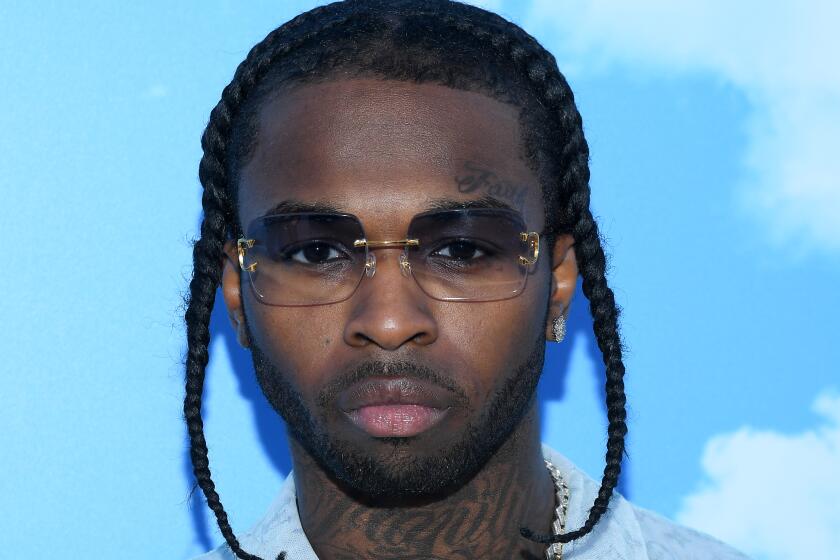Across L.A., hip-hop fans mourn the loss of Pop Smoke and other young stars: ‘It’s part of the culture now’
- Share via
Downstairs at the Regent Theater on Friday night, just days after 20-year-old Brooklyn rapper Pop Smoke was killed by gunmen in the Hollywood Hills, hundreds of young fans moshed and circle-pitted while Atlanta hip-hop artist Thouxanbanfauni performed. With face tattoos, punk-inspired productions and anime visuals behind him, he fit right in with the wave of young rap acts pushing the genre into volatile, thrilling new directions.
Upstairs, however, Victor Lorenzana wondered who might be the next MC to die.
“Pop Smoke was the same age as me and he was shot just because he was getting money,” the 20-year-old said. Lorenzana, who lives in South Gate, is an aspiring hip-hop manager, and he admitted that the wave of deaths that has hit the genre in the last two years — Pop Smoke, Nipsey Hussle, Mac Miller, Juice Wrld, XXXTentacion, Lil Peep, all stars cut down in their ascent or prime — has started to weigh on him and the scene he loves.
“It does make me think,” he said. “I don’t wanna end up like that.”
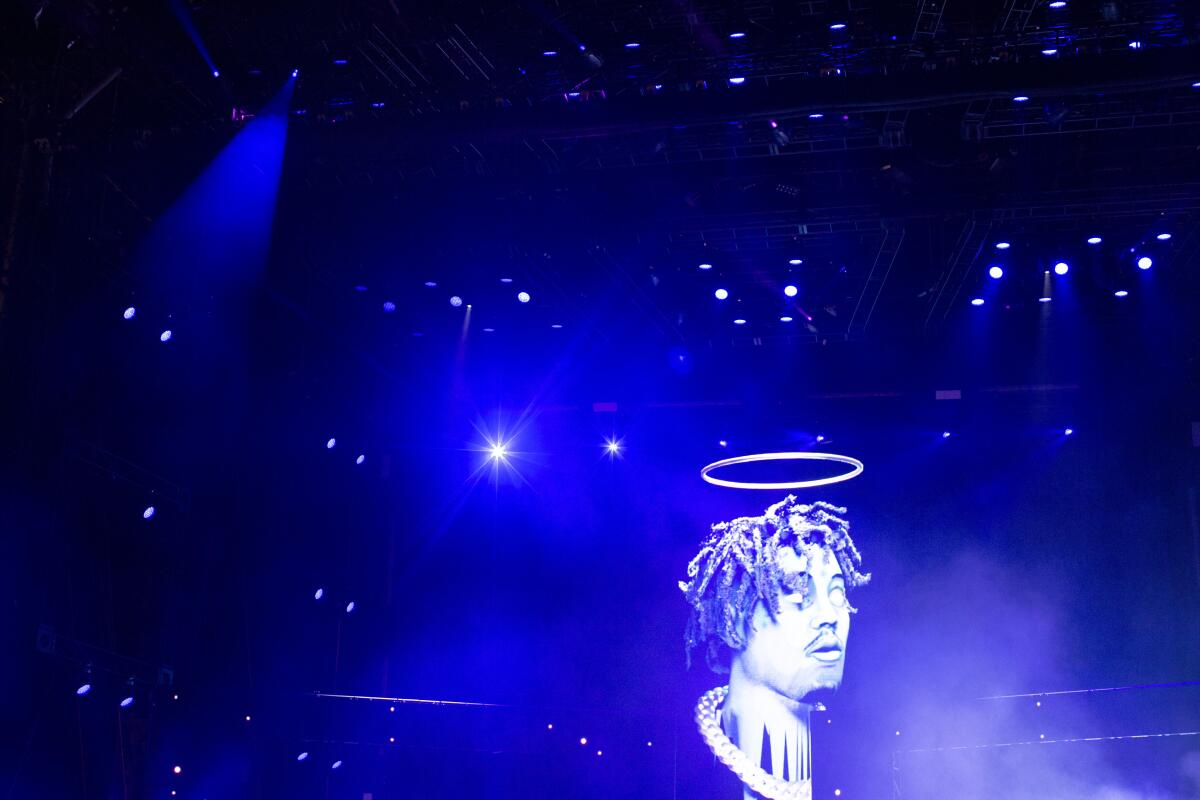
Hip-hop has long been stalked by the same issues of violence, drug abuse and mental health that affect young people of color everywhere in America. But if you’re a fan today, and your social media feeds are flooded with memorials to young rappers every few months, it’s hard not to feel weary and depressed by it all. Over the weekend, at the Regent show and along the streetwear nexus of Fairfax Avenue, young rap fans were both mourning those deaths and slowly getting numb to them.
“It’s depressing to say that it’s not surprising anymore, but it’s not,” said 16-year-old Sophia Mena, who lives in L.A. and came out to see Thouxanbanfauni. “We’re desensitized to it. Kids think it’s a cool image now.”
Detectives are examining whether rapper Pop Smoke’s killers may have learned of his location at a Hollywood Hills home from social media posts.
The music of this recent generation of hip-hop has often emerged on streaming platforms like SoundCloud. The tone is dark and beguiling for millennial and Gen Z fans: It often fetishizes dying young, abusing drugs and succumbing to depression. For many fans, it has been cathartic to hear rappers more or less their same age talking so openly about their own fears. It’d be naive to think that hip-hop is introducing kids to drugs and violence, rather than reflecting what is already a fact of their lives.
But the constant stream of death is making them reassess their own lifestyles and what they want out of the music that’s on constant replay around them.
“It’s definitely made me more aware of what I’m doing, that it’s not a game,” 18-year-old Amanda Castro said at the Regent. “People shouldn’t glorify drugs and violence.”
Rising Brooklyn rap star Pop Smoke was killed in a Hollywood Hills home invasion. His musical legacy, though brief, was already secured.
Cierra Barnett, 24, was similarly existential about all the homicides and overdoses that have plagued the music scene she loves.
“It’s definitely made me more aware of my surroundings, and the meaning of life,” she said. “Life is short, reach out to your loved ones, because you’re here today, gone tomorrow.”
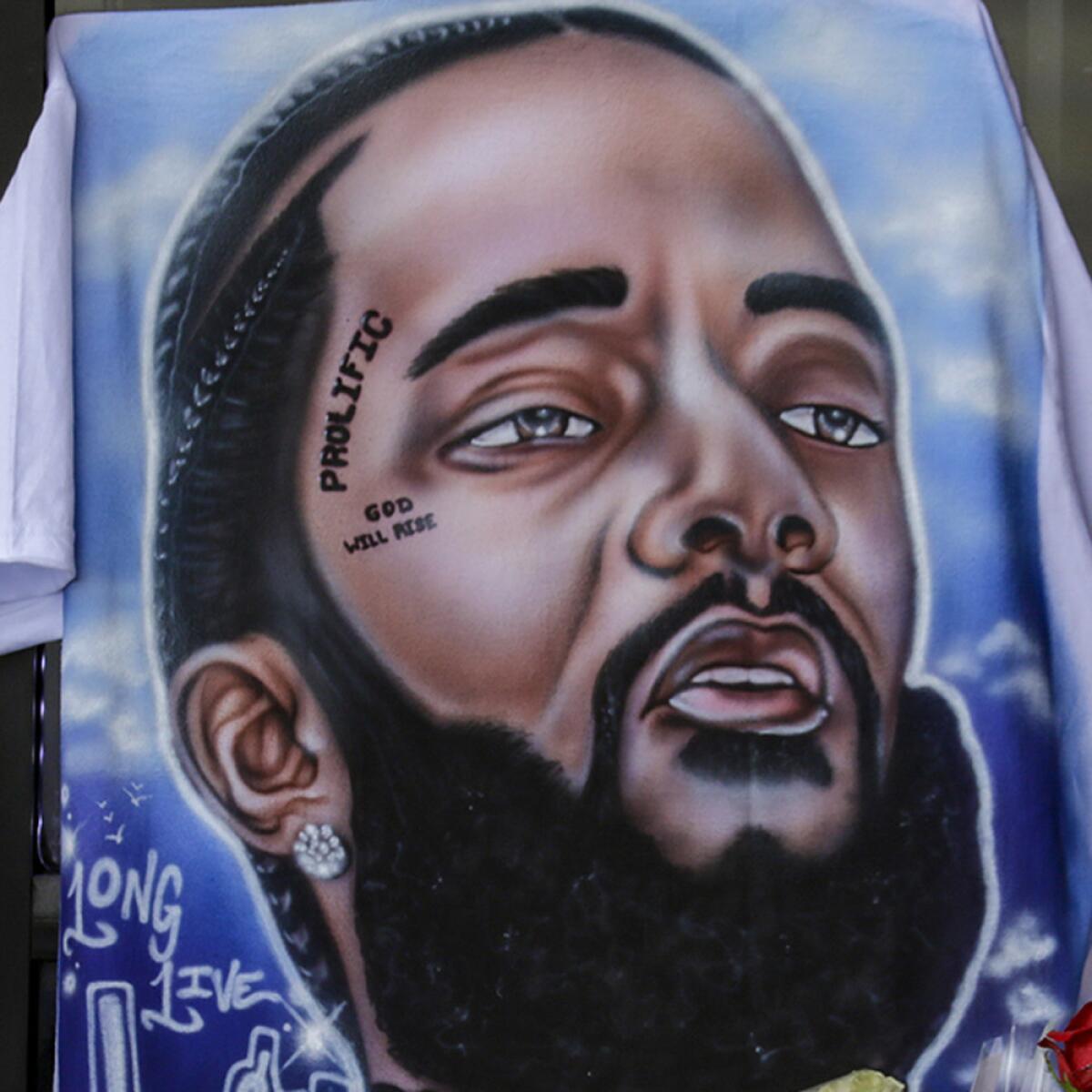
Authorities are still working to determine the motive and suspects in Pop Smoke’s killing. “We are not ruling out a robbery, but that doesn’t appear based on the evidence to be the motive,” Robbery Homicide Division Capt. Jonathan Tippet told The Times.
It’s important not to conflate the suspected drug-related deaths of Lil Peep, Mac Miller and Juice Wrld with the violence that claimed Nipsey Hussle, XXXTentacion and Pop Smoke. But for fans, the means of death don’t change the effect of so much loss.
Julius Woods, 20, manages rising producers Dilip and Otxhello. In the upstairs bleachers at the Regent, Woods spoke about his scene with haunted undertones. He does his best to encourage friends and peers to look past the nihilistic images on social media and in lyrics.
“Working in this industry, I’m grateful to do it, but you can’t take it for granted. When people get into drugs, it’s hard to watch,” Woods said. “I know a lot of people who got close to dying and then they woke up. We need to not get to that point.”
Out on Fairfax, the nexus of the hip-hop fashion industry with stores like Supreme and Tyler, the Creator’s Golf Wang, fans were thinking about the industry’s structural problems that make so many young artists vulnerable.
Jen Elizabeth, 34, who works in development for several streetwear labels, lamented how the hyper-speed culture of rap fame leaves kids so unprepared for the downsides of getting too much, too soon.
“It’s really sad. The internet has created a situation where people can go from very young and not famous to pretty much famous overnight, with no support system and everyone there to take advantage of them,” she said. “A lot of them come from places where there’s gang violence or issues they get wrapped up in, and still they’re not that far away from it all.”
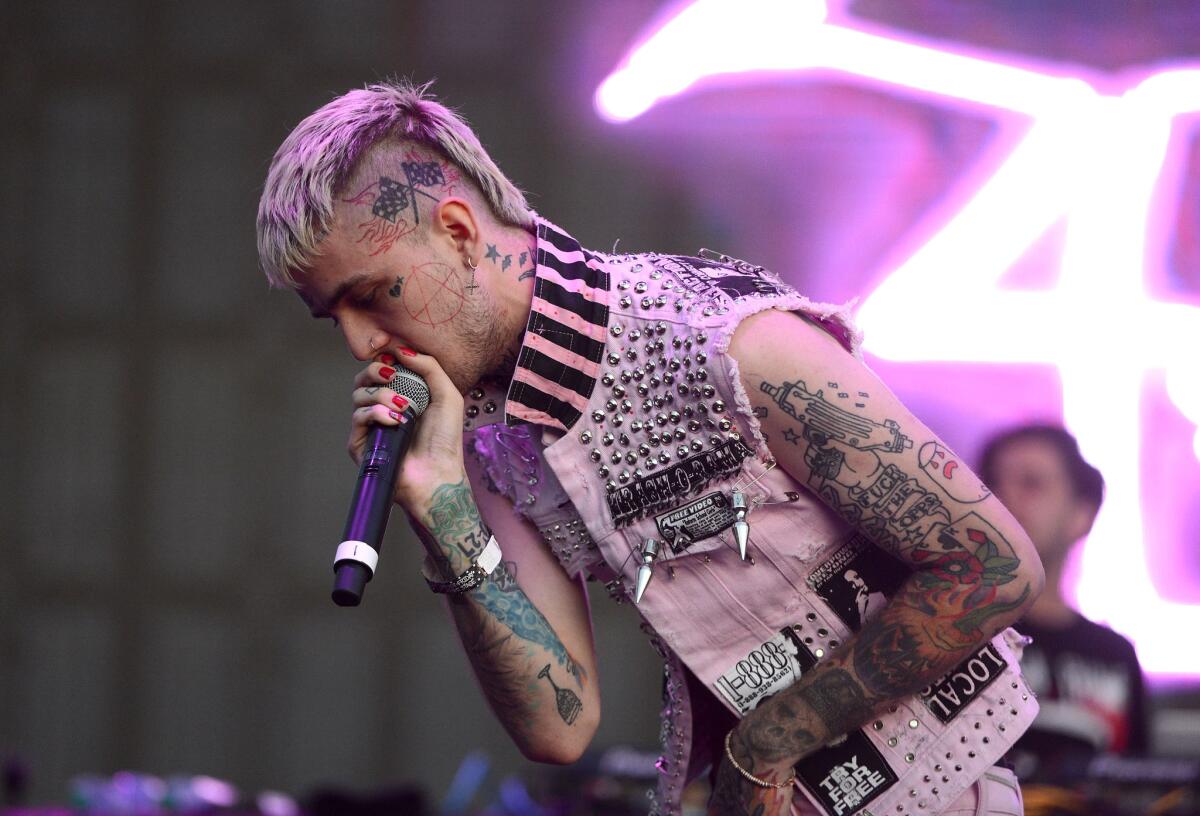
Inside 424 on Fairfax, a trendsetting boutique and label that’s collaborated with YG and the Weeknd, the shop staff was similarly melancholy and reflective about the dark tide that’s washed over their culture.
“It’s a tumultuous time. The precedent’s been set where your acclaim is posthumous,” said Jasmine Wood, 26. “It’s become part of the culture now in a sad, sadistic way.”
But she also saw a sort of silver lining in the fact that, given all the publicity around overdose deaths and gang violence, it’s opening up space for young people to confront these challenges in their own lives.
“If you listen to Pop Smoke or Juice Wrld, they rapped about real struggles,” Wood added. “Rap has become a more vulnerable place, and rappers, especially young black men, have had more space to express that.”
If the sheer scale of death to hit the genre makes fans care for each other and re-evaluate their own lifestyles, that may be a ray of light amid all the tragedy. But rappers have a role here too, said David Diaz, 22, who moved to L.A. six months ago.
He’s a lifelong rap fan, and behind the desk at 424, he’s at the heart of the culture. But fans soak up the messages that artists offer in lyrics, he said. Especially for younger fans, it’s important for them to also hear from artists that life goes on past 21 and that it’s worth it to stay alive.
“Rappers have a huge platform,” Diaz said. For young audiences to absorb so much imagery of drugs, violence and depression, “it’s affecting all their fans. They should consider that there’s a lot of people looking up to them. I have younger siblings who have gone through depression, and music is one thing that gets people out of that.”
More to Read
The biggest entertainment stories
Get our big stories about Hollywood, film, television, music, arts, culture and more right in your inbox as soon as they publish.
You may occasionally receive promotional content from the Los Angeles Times.
